Logical Reasoning Reading Fiction Worksheets for Ages 5-8
7 filtered results
-
From - To
Unlock your child's creativity and critical thinking skills with our Logical Reasoning Reading Fiction Worksheets for Ages 5-8. Designed to enhance comprehension and reasoning abilities, these engaging worksheets encourage young readers to make connections, draw inferences, and solve problems within fictional contexts. Each activity nurtures imagination while teaching the essentials of logical reasoning through captivating stories and scenarios. As your child reads and responds, they develop a deeper understanding of narrative structure and character motivations. Perfect for early grade classrooms or home learning, our resources are tailored for young learners to explore the exciting world of fiction while sharpening their analytical skills.
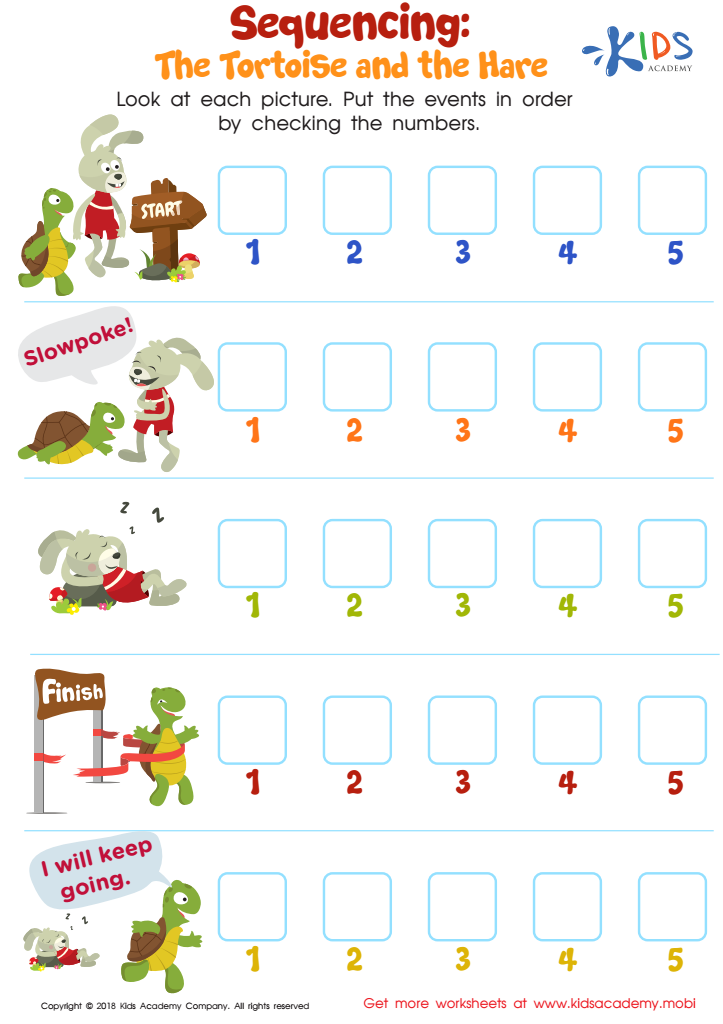

Sequencing: The Tortoise and the Hare Worksheet
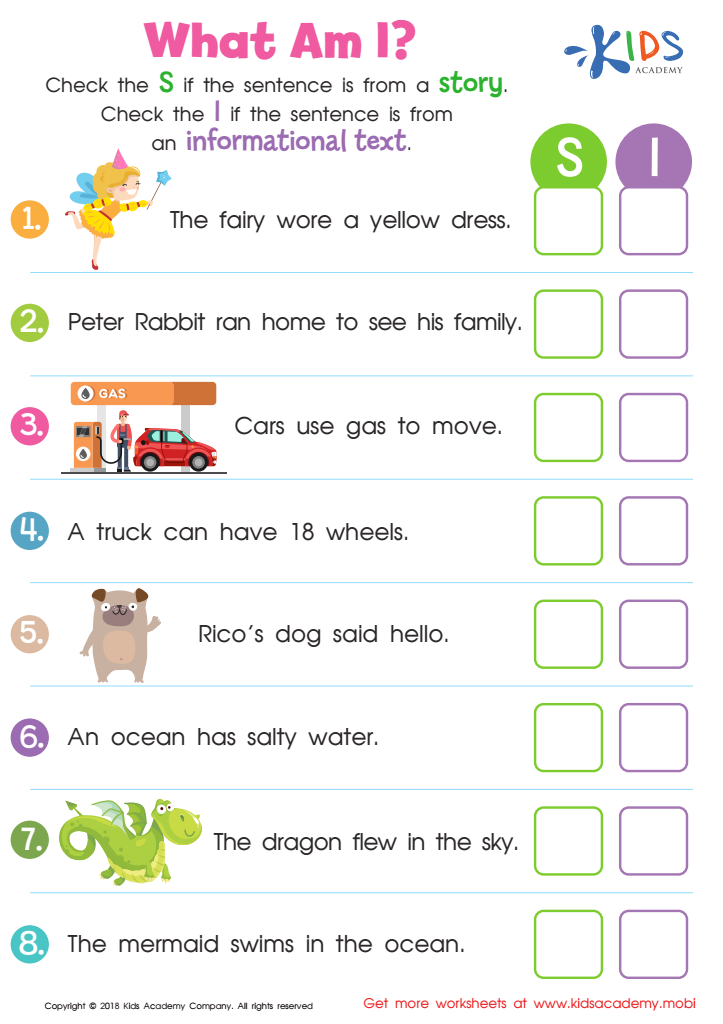

What Am I? Worksheet
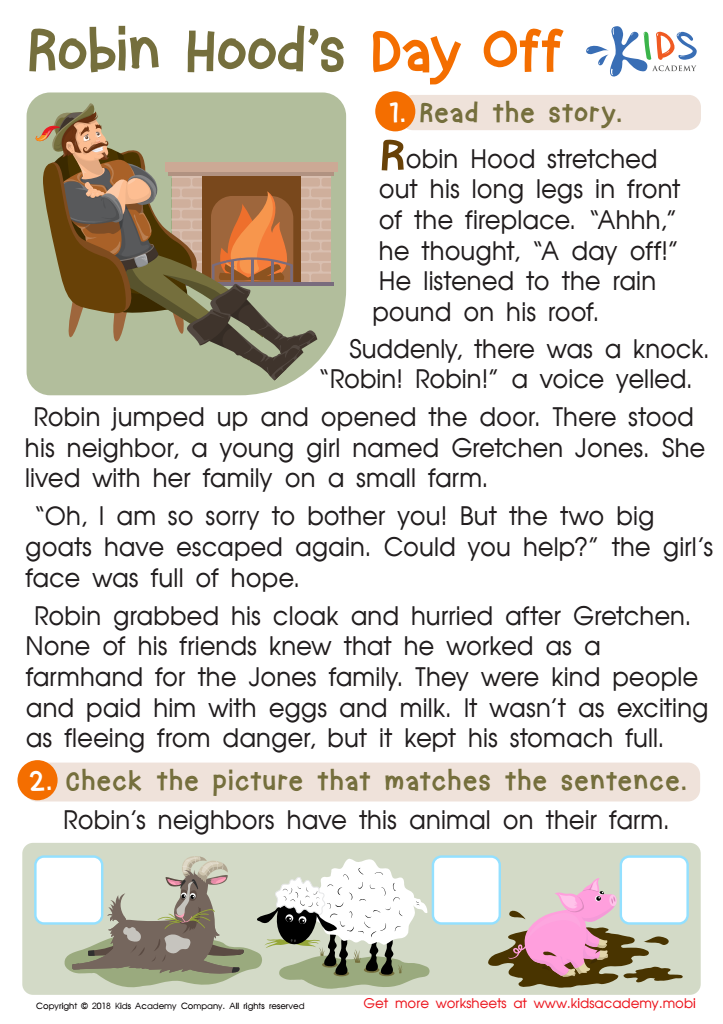

Robin Hood's Day Off Worksheet
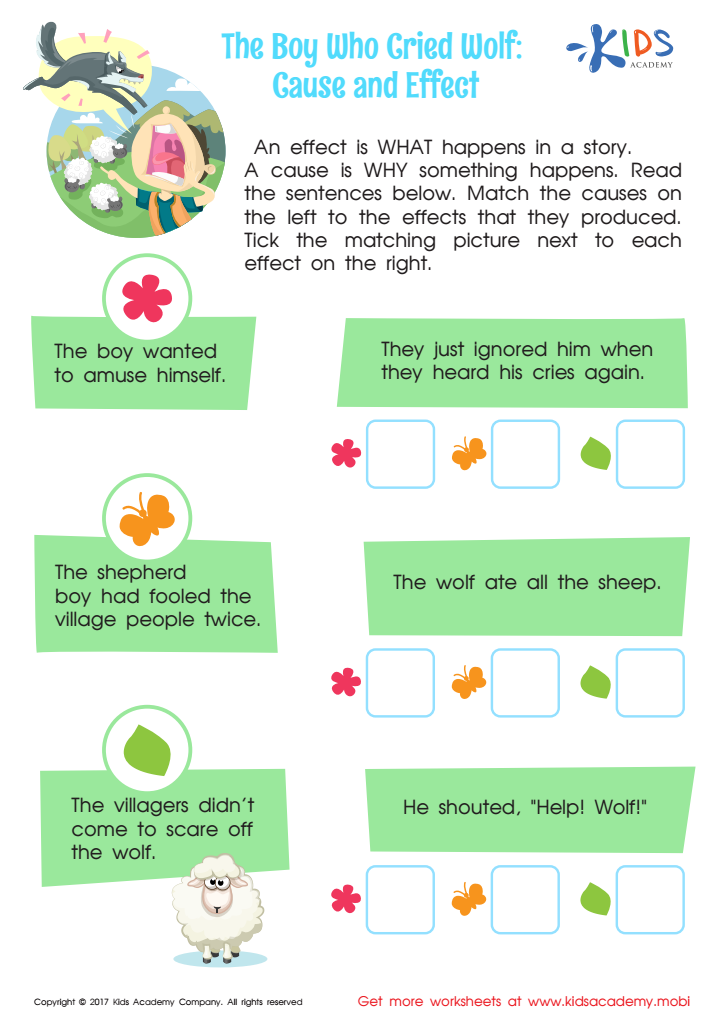

The Boy Who Cried Wolf: Cause and Effect Worksheet
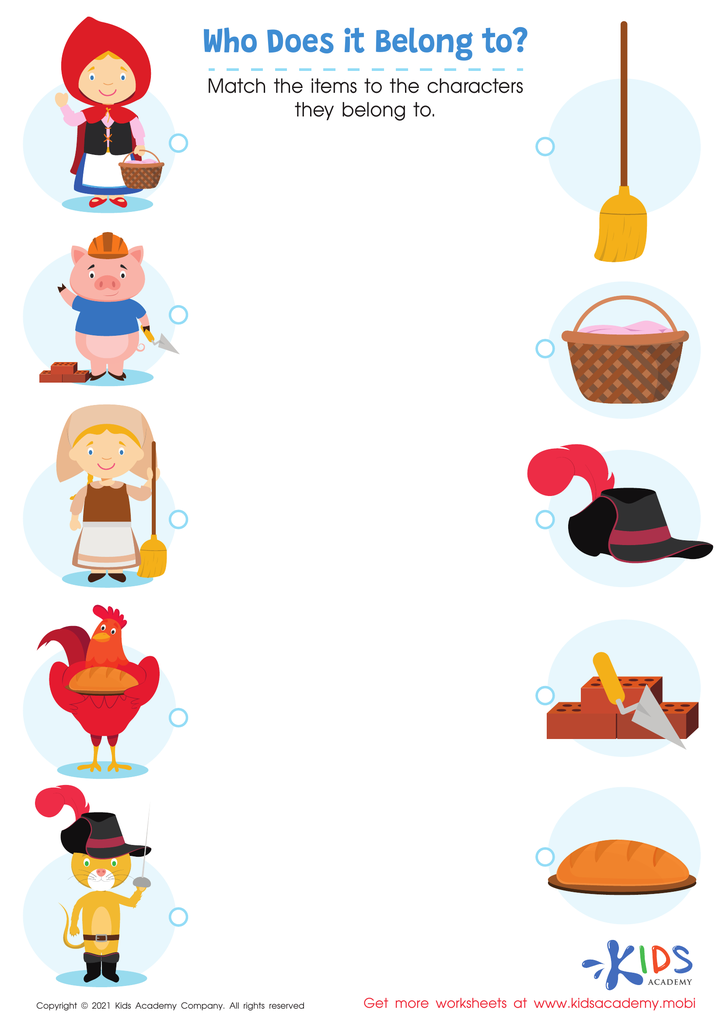

Who Does It Belong To? Worksheet
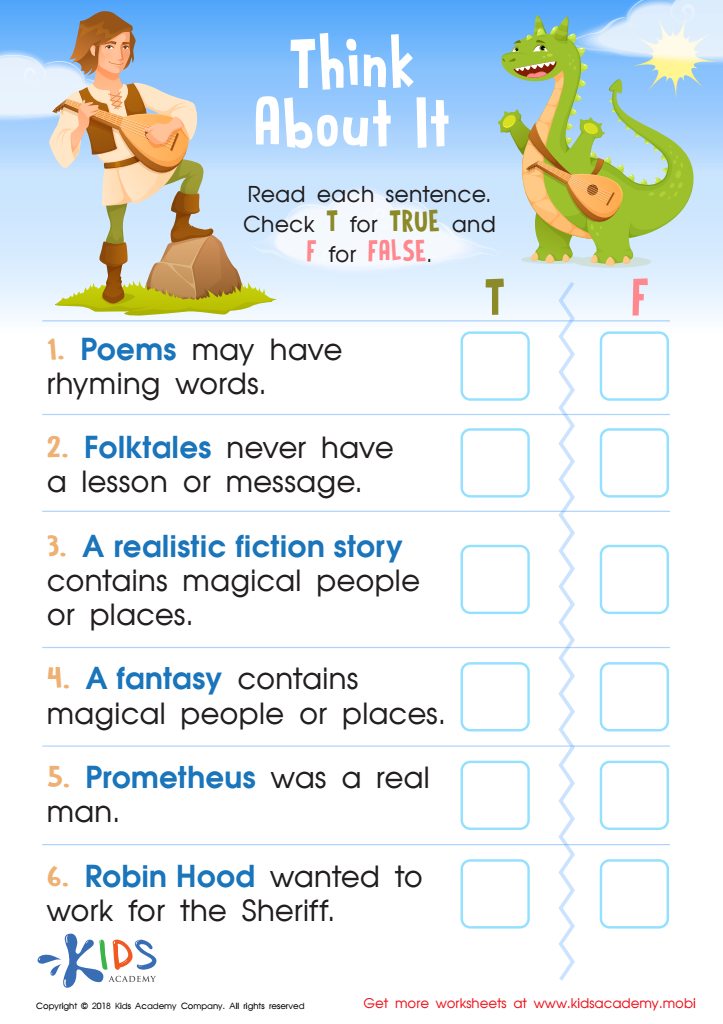

Think About It: Assessment Worksheet
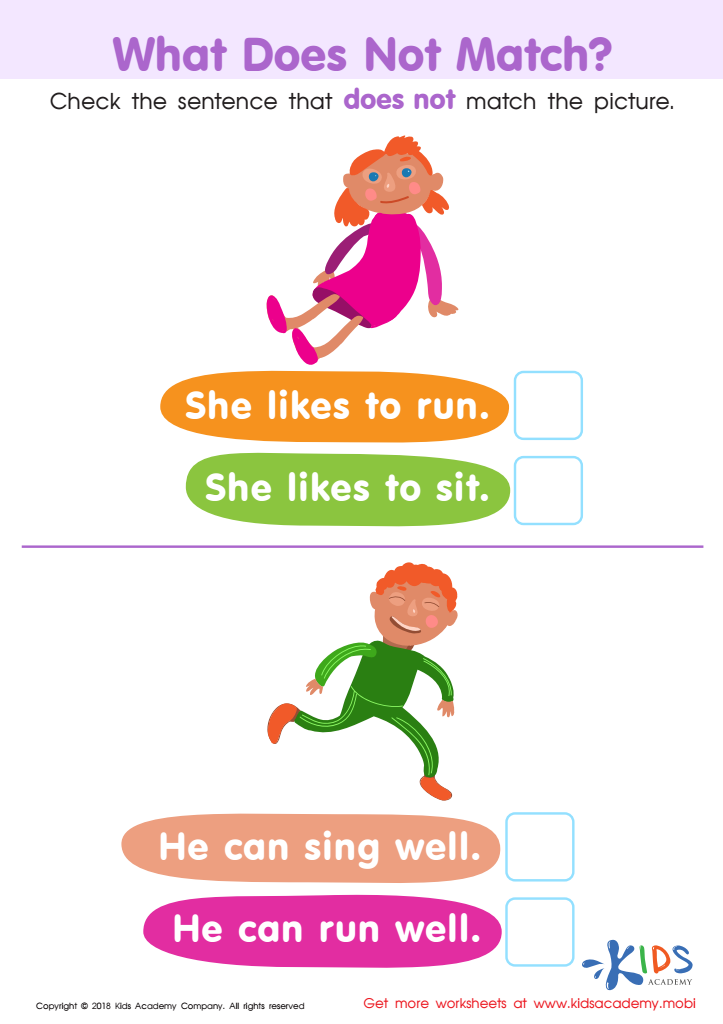

What Does Not Match? Worksheet
Logical reasoning is a crucial skill for children, especially when reading fiction. For children aged 5-8, engaging with stories not only nurtures their imagination but also enhances critical thinking abilities. When parents and teachers encourage logical reasoning in reading, they support children in making connections, predicting outcomes, and understanding character motivations.
Fiction is rich with scenarios that prompt children to analyze information—this trains them to approach problems methodically. For instance, as children discuss what a character might do next or why a particular event occurred, they practice hypothesizing and drawing conclusions based on textual evidence. This kind of cognitive exercise promotes comprehension and retention of information, skills essential for academic success.
Furthermore, logical reasoning nurtures social-emotional skills as children reflect on character choices, fostering empathy and moral reasoning. For educators and parents, prioritizing logical reasoning in reading fiction not only cultivates literary appreciation but prepares children for real-life situations where critical thinking is required. Thus, investing in this area of learning is invaluable for establishing a foundation of both academic and life skills, supporting lifelong learning and personal development.
 Assign to My Students
Assign to My Students

















